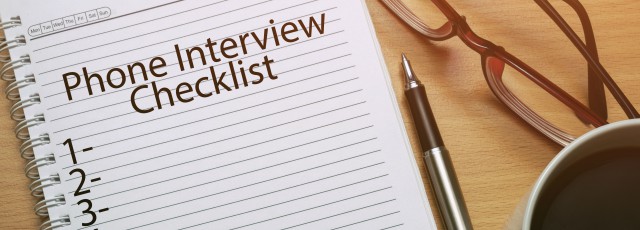Phone screen interview questions and answers
Do you interview candidates on the phone as part of your hiring process? These phone screen interview questions will help you screen candidates to determine who to invite to an in-person interview.

Questions to ask candidates in a phone interview
Phone interviews are helpful during initial hiring stages. They’re an opportunity to reject candidates who don’t possess must-have skills for a specific position. You don’t have to include questions that require too much thinking on the candidate’s part. Complex interview questions (like behavioral and situational) are more suitable for an in-person discussion.
Recruiters and hiring managers use phone interviews to:
- Check potential deal-breakers early on (e.g. availability, authorization, relocation, flexibility in working hours)
- Ask for clarification on information in candidates’ resumes or LinkedIn profiles
- Evaluate candidates’ verbal communication skills (in some cases, test candidates for their ability to speak foreign languages)
- Get to know candidates
- Share basic information about the opening to see if candidates are interested
Phone screening interviews can also be convenient for remote workers and distributed teams. The hiring team can use phone (and video) interviews to evaluate candidates’ skills and then invite a shortlist of two or three potential hires for the final face-to-face interview with the company’s CEO.
Here’s what we’ll cover:
Example phone interview questions
- Tell me about yourself. What skill set or qualities do you have that are relevant to this position?
- Why did you apply for this position? Was there something specifically in the job description or ad that drew your attention?
- What motivated you to choose this career path?
- Are you currently working? If so, what period of notice do you need to give to your employer before resigning?
- The working schedule for this position is [X number of days – X working hours]. How flexible/willing are you to follow this schedule?
- Do you have experience using [X] software in any of your previous jobs?
- What are your salary expectations?
- Are you authorized to work in [X] area?
Tips to conduct a phone interview
- Inform your candidates of the specific day and time that the job interview will take place. Also, let them know how long it might take and tell them the name of the phone interviewer. You can send candidates a phone interview email invitation so that they have all the necessary information in hand.
- Before a phone interview, prepare your list of questions and make sure they are clear. Create an interview script if helpful. You don’t want to spend time explaining your questions. Try to keep the discussion flowing.
- Block any noisy distractions during the telephone interview. Choose a quiet corner in the office or a private room and a good set of headphones. Try a sound check beforehand to ensure your equipment operates properly.
- Ask follow-up questions, if you need clarifications, or ask an “off-script” question if you notice something interesting about the candidate. But, make sure your interview doesn’t take too long. Phone interviews are useful for an initial introduction.
- Keep brief notes during an interview and more detailed notes after each interview. You’ll find these notes helpful when you want to compare answers among a large group of candidates.
Red flags
- Ghosting. If the candidate doesn’t answer the phone call (even though you had a scheduled appointment), that can speak poorly about their reliability or interest in the position.
- External noises or bad signal. Just like the recruiter, the candidates should also prepare for the interview. A bad phone signal, noises and distractions are off-putting. If the candidate faces some temporary issues (e.g. with their signal) they could suggest an alternative, like rescheduling or interviewing through Skype.
- Uncomfortable vibes. Even though you can’t see the candidate’s facial expressions and body language, you can still glean whether they feel at ease or not. If their tone shows they’re uncomfortable through the entire interview, they may lack communication skills, which is a bad sign mostly for sales and customer service roles.
- Unprofessional expressions. A phone interview is still an interview for a job. The conversation doesn’t have to be too formal, but if the candidate uses casual expressions like “Hey”, “Huh?” and “Say again?”, that may indicate they don’t take this interview seriously.
